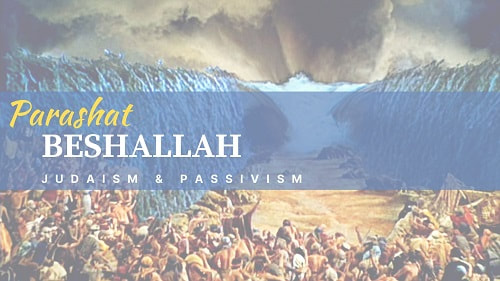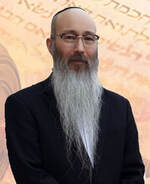|
By: HaRav Menashe Sasson Reporting from Jerusalem, Israel Published in the U.S.A. It is not uncommon to hear someone say that the Jewish response to aggression should be to pray and say Tehillim (Psalms). In support of this position, advocates of passivism often quote a pasuk from Parashat Beshallah which states, “The Lord shall fight for you, and you shall hold your peace.” Shemot 14:14. Passivism can be defined as “the doctrine that all violence is unjustifiable.” https://www.vocabulary.com/dictionary/passivism. What is the Torah perspective on “passivism”? Parashat Beshallah, recounts the story of the Hebrews departing Misrayim after finally having been given permission by Par’o to do so. However, after allowing the Hebrews to leave, Par’o had an apparent change of heart and decided to muster his army to pursue and attack them. The Hebrews, for their part, weren’t all too happy either. They complained to Moshe Rabbeinu, saying, “Because there were no graves in Misrayim, hast thou taken us away to die in the wilderness? Shemot 14:11. It was in this context that Moshe Rabbeinu said, “The Lord shall fight for you, and you shall hold your peace.” Shemot 14:14. Seemingly, Moshe Rabbeinu was, in essence, saying, “Pray; say Tehillim, and everything will be okay.” However, in the very next pasuk, the Torah states, “And the Lord said to Moshe, ‘Why dost thou cry to Me? Speak to the children of Yisra’el, that they go forward.’” Shemot 14:15. The Talmud relates that at the moment the Hebrews were starting to cross the Red Sea, “Moshe was prolonging his prayer. The Holy One, Blessed be He, said to [Moshe]: My beloved ones are drowning in the sea and you prolong your prayer to me?” Maseket Sotah 37a. Rashi explains that HaShem was saying, “Now is not the time to prolong prayer, for Israel is in distress [and immediate action must be taken.]” Rashi, Commentary on the Torah, Shemot 14:15. To drive home the point, the Talmud further relates that, as the tribes were arguing among themselves, none willing to be the first to enter the Red Sea, “Nahshon ben Amminadab . . . descended into the sea first [accompanied by his entire tribe],” Maseket Sotah 37a, . . . and when the water was up to his neck, only then did he cry out in prayer “Save me, God; for the waters are come in even unto the soul. I am sunk in deep mire, where there is no standing . . . let not the water flood overwhelm me, neither let the deep swallow me up.” Id., citing Tehillim 69:2–3, 69:16. At the end of Parasha Beshallah, we read of the battle against Amaleq:
Shemot 17:8-13 Thus, we see that the Torah is not teaching that the Jewish people should be passivists; quite the contrary. What the Torah is teaching is that when faced with imminent aggression or other danger, the Jewish people should not “cry to [HaShem],” that is, the Jewish people should temporarily stop praying and saying Tehillim, and, instead, get down to the business of self-defense. HaShem, in turn, will then “fight for” the Jewish people. Shemot 14:14. As we learn from Moshe’s prayer at Refidim, the Torah is not saying that prayer and saying Tehillim are unimportant; both are very important. Rather, the lesson the Torah is teaching is that there is a proper time for everything — including prayer and reciting Tehillim. In the famous words of Qohelet, there is “[A] time to love and a time to hate; a time for war and a time for peace.” Qohelet 3:8. History bears this lesson out as well. To cite just two examples, one needs only to look back a few short years to the 1948 War of Independence and to the Six Day War of 1967 to see that, against all odds, the State of Israel, with HaShem “fight[ing] for” the Jewish people — successfully defended itself against overwhelming Arab aggression. Indeed, if, when the time comes, you do your part, “[t]he Lord shall fight for you, and you shall hold your peace.” Shemot 14:14. שבת שלום Shabbat Shalom! Copyright © The Israel Foundation. All Rights Reserved.
0 Comments
Your comment will be posted after it is approved.
Leave a Reply. |
THE ISRAEL FOUNDATION





